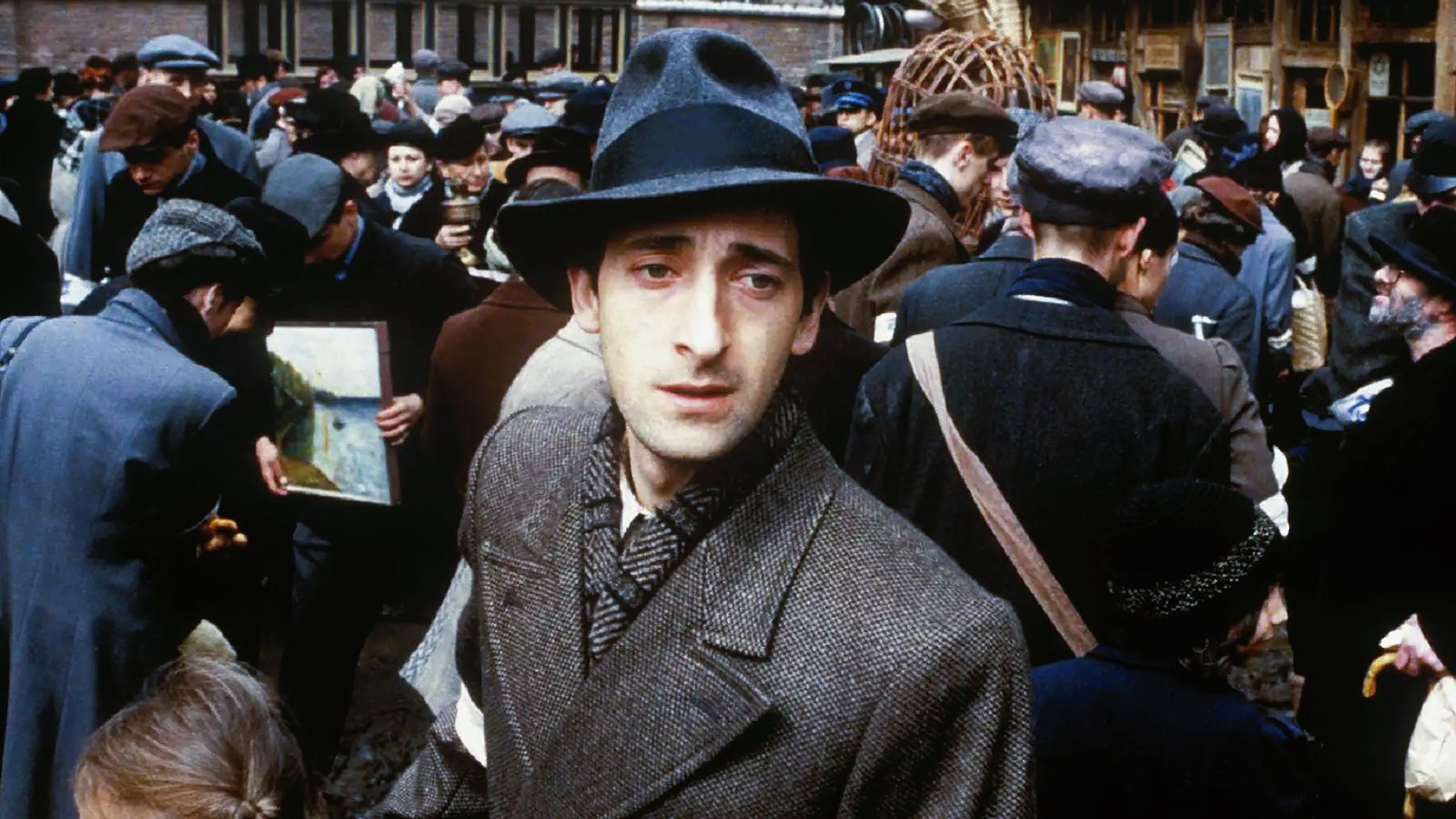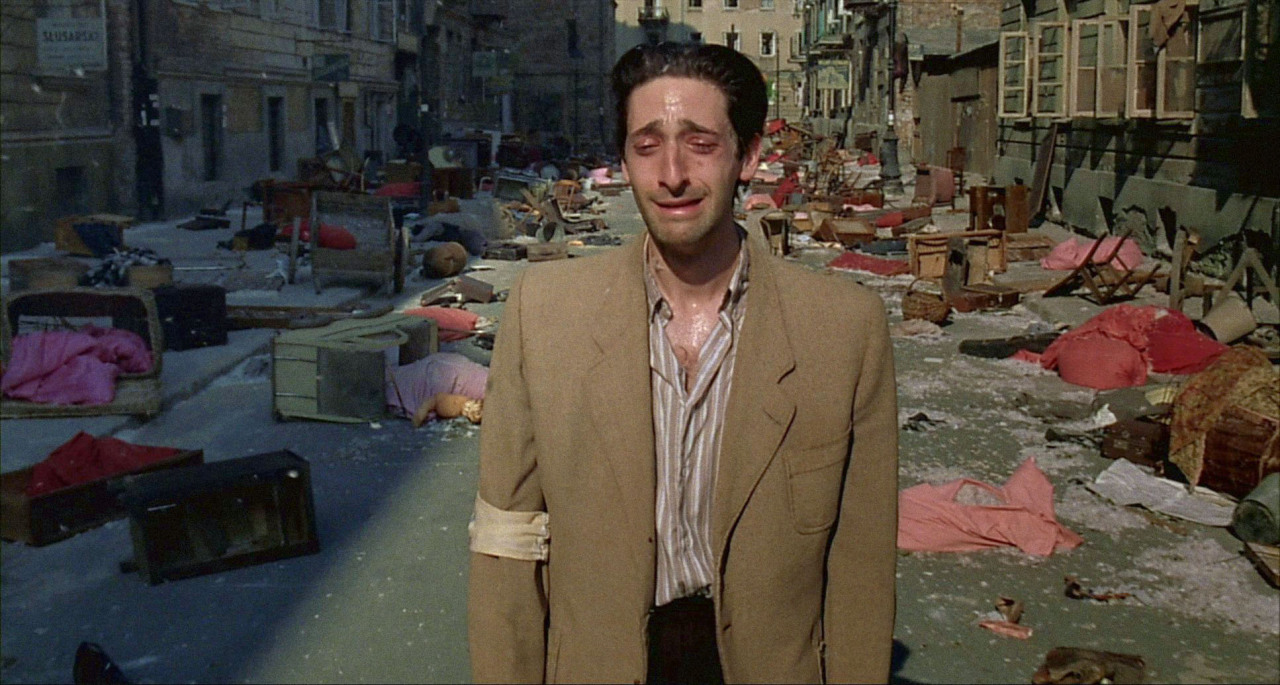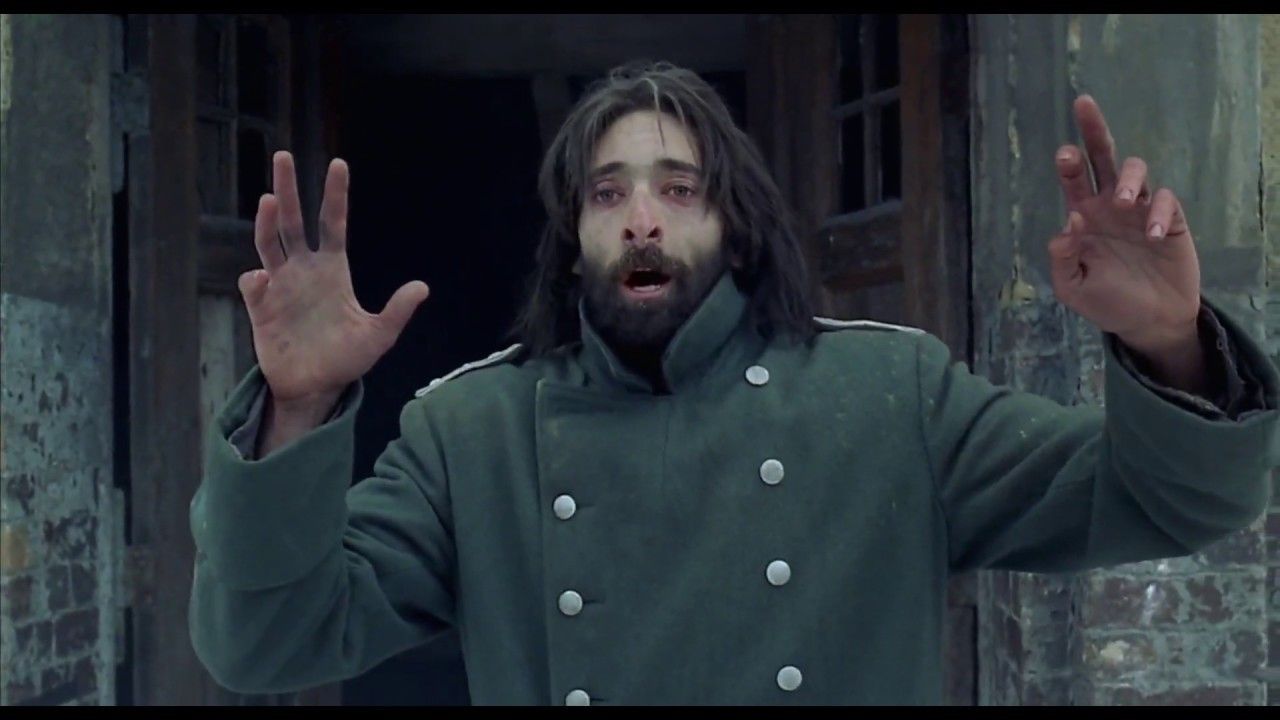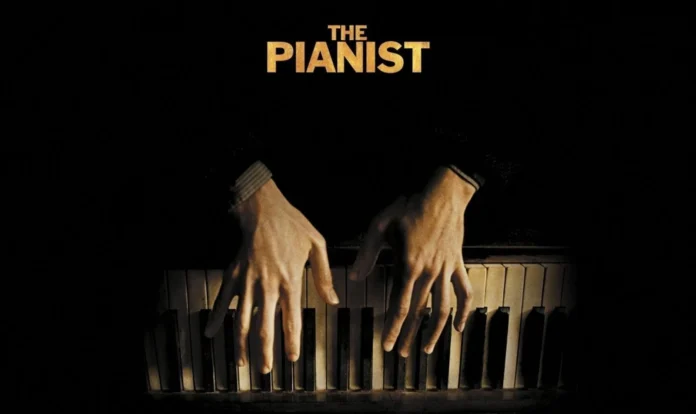By Katerina Taxiaropoulou,
Dark screen. Then, a slow fade-in to Warsaw’s busy streets. It’s a peaceful morning on September 23rd, 1939. Inside a radio station, a lean, polished young pianist is playing Chopin’s Nocturne in C-sharp minor, when, suddenly, a bomb attack interrupts him. Musical harmony gives place to a barrage of machine-gun fire, sirens, and falling walls, as the camera moves from the empty studio towards the building’s crowded exit hallway. Thus, full of change, abrupt and unexplained – absurd – is Roman Polanski’s 2002 film, The Pianist.
The director was born on August 18 1933 to a Catholic mother and a Jewish father. When he was four years old, his family moved from Paris to Kraków, Poland, where they later became targets of persecution commanded by the anti-Semitic Nuremberg Laws. Upon the invasion of Poland by the German forces, Polanski’s family was forced to live in the Kraków ghetto, together with the rest of the city’s Jews. As Laura Bushel claims, The Pianist became the vessel in which Polanski could finally “distill his own experiences” of the Holocaust, a “deeply personal and astonishing” picture (BBC).
Set in World War II Warsaw, the film tells the true survival story of Polish-Jewish pianist and composer Władysław Szpilman who is portrayed by Adrien Brody. Much like Polanski’s family, Szpilman’s family is exiled to a Jewish ghetto, where living conditions are adverse. People starve to death, the SS guards torture and kill Jews for their sport, children are abandoned and abused. Szpilman becomes “a witness to an incomprehensible atrocity” and through his eyes, we follow a narrative where there is “no attempt to explain or excuse anything” (The Guardian).

One night, the pianist watches the SS walk into an apartment across the street, shoot the entire family, and finally throw a wheelchair-bound old man out the window. On another occasion, Szpilman is walking around the Ghetto streets in broad daylight, when he suddenly sees a SS guard torture a young boy to death. When later he and his family are transported to the Treblinka extermination camp, the pianist witnesses episodes of paranoia and mass killing with an eye that stays “unblinkable” the whole time (Times).
The pianist lives through all these absolutely absurd incidents and does not react. It goes against every law of nature and reason that Jews are subhuman creatures and so worthy of extermination, that some foreigners invade a country and banish people from their homes, torture and kill them for fun. Yet, the persecuted accept and follow the orders of the persecutors silently. In his performance, Adrien Brody chooses to portray the traumatized soul of an artist “without making him a hero”, but rather “an observer” who escapes capture and watches the atrocities from the safe distance of his various hideouts (BBC). Although he is deeply troubled and desperate, he tries to remain detached and practical, as this is the only way to survive.
So, when later someone from the Jewish Ghetto Police offers to help him flee from the extermination camp, Szpilman takes the chance, even if this means having to leave his family behind. He returns to Warsaw where he is faced with the results of the Nazi’s attack: bombarded homes, furniture, clothes, and bodies scattered on the street, in the words of Mick LaSalle, “a panorama of destruction, a world of color bombed into black-and-white devastation” (San Fransisco Chronicle). It is there that we first see him express his true emotions. As he walks past the ruins, Szpilman bursts into a long, angry, mournful wail.

Unable to stay on the streets without being arrested, he seeks the help of his non-Jewish friends, who manage to find a hiding place for him. From the window of his flat, he watches the Warsaw Ghetto Uprising unfold and eventually fails. He moves to another flat when a neighbor finds out about him. This house has a piano in it and so naturally, Szpilman is compelled to play. At some point, the pianist sits on a stool ritualistically and plays the piano, without actually touching the keys. This child-like pretend game breathes as a moment of freedom, whereby the protagonist, immersed in sweet oblivion, is able to relieve the glory of his past. The tune we hear is a highly uplifting one, delivered by Janusz Olejniczak with “unquestionable virtuosic poise and technical aplomb” (WSWS). Suddenly, Szpilman’s face lightens up and he looks at the picture of health.
After some time, however, his friends cannot visit him anymore and the guy they send for help does not provide him with food. Soon, Szpilman starves and falls ill with icterus. He does not have much time to recover, as his hideout is attacked during the Warsaw Uprising. Thus, he flees to an abandoned house opposite a hospital, now turned into an office for the German troops. There, he finds a can of pickled cucumbers which he desperately tries to open. According to A.O. Scott, in this scene Szpilman “comes to resemble one of Samuel Beckett’s gaunt existential clowns, shambling through a barren, bombed-out landscape clutching a jar of pickles. He is like the walking punchline to a cosmic jest of unfathomable cruelty”. (The New York Times). Although the way he holds the can, like a boy holding a toy angry at its malfunction, is indeed funny, the audience however cannot laugh.
Right this moment, Szpilman is discovered by Wehrmacht officer Wilm Hosenfeld. Upon learning that the gaunt man is a pianist, the music-loving and also conscience-stricken officer asks him to play something on a grand piano in the house. Thus, the agonizing musician plays Chopin’s Ballade No. 1 with “so much rubato”, that the listeners feel “pulled on, and often uncomfortably so” (WSWS). This abrupt speeding up and slowing down in his musical narration reflects Szpilman’s feelings on war: confusion, anger, fear, and despair. Stunned by his performance, the officer allows the pianist to stay in the abandoned house and provides him with food regularly.
A few weeks later, the Germans retreat from the Red Army offensive and so, Hassenfeld meets Szpilman hastily to say goodbye. He promises to listen to him on Polish radio and gives him his greatcoat. Because of that, Szpilman is later attacked by the Polish People’s Army. Against their pointing guns, he puts his hands up and makes a wan attempt to shout: “No, please. I’m Polish. I’m not a German”. When they ask him why he would wear a german military coat, he gives the simple, down and dirty, human answer: “I’m cold”.

Events escalate quickly and, in a cyclical manner, the film ends with a polished Szpilman playing Chopin’s Nocturne in C-sharp minor for Polish radio again. Although this is a happy scene, it is overshadowed by a great feeling of emptiness. As Philip French concludes, The Pianist provides “no triumphalist ending”, but by de-emphasizing acts of heroism, it gravitates towards “stoic honesty” (The Guardian). By the end, no particular lesson has been learned. Thousands of people suffered, fighting in a war they never asked for and never understood. Now, the survivors need to give yet another fight to recover from the trauma. And life must go on as if nothing has ever happened.
References
- The Pianist. The Guardian.com. Available here
- The Pianist (2003). BBC. Available here
- A review of music from the motion picture The Pianist. wsws. Available here
- Surviving the Warsaw Ghetto Against Steep Odds. archive.nyt. Available here
- Polanski’s ‘The Pianist’ is a true account of one man’s survival in the Warsaw ghetto. sfgate. Available here




